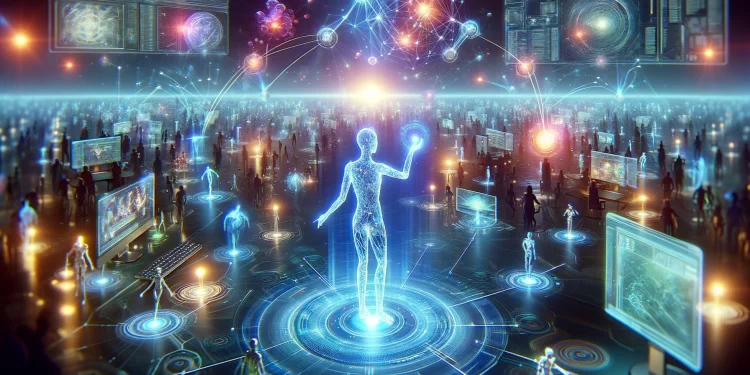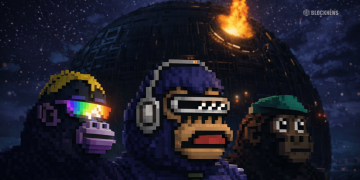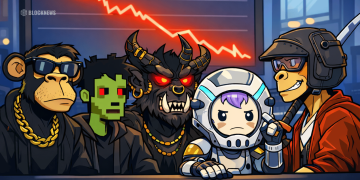- AI and blockchain are reshaping gaming, with AI offering tools to create digital assets and enhance player experiences.
- Criticism surrounds Web3 gaming and NFTs, but developers aim to focus on improving gameplay rather than highlighting technology.
- Generative AI boosts game development efficiency, benefiting both large studios and indie developers by expanding creative possibilities.
Web3 gaming is undergoing a significant transformation, thanks to the integration of artificial intelligence (AI) and blockchain technology. A recent podcast on The Agenda, featuring Atlas CEO Ben James, shed light on this evolution, particularly in generative AI. This technology enables the creation of diverse digital content, including images, videos, and in-game items, from simple user prompts.
The Blend of AI and Gaming
The fusion of AI with gaming is not just about introducing new technologies but enhancing the overall gaming experience. Developers are keen on using these advancements to create richer, more immersive worlds. By employing AI, they can now generate intricate digital assets, such as unique weapons and equipment, which players can own and use within the game. This approach not only adds depth to the gameplay but also fosters a stronger connection between players and the game.
Embracing New Horizons
The gaming industry’s giants, along with independent creators, are embracing AI to redefine what’s possible in game development. Atlas, a pioneering startup, is at the forefront of this movement, collaborating with numerous companies to integrate generative AI into gaming. The technology’s ability to significantly accelerate development processes is a game-changer. It allows for the creation of vast, detailed game maps and worlds that were previously unimaginable due to resource constraints.
Despite concerns about AI potentially displacing human jobs, the perspective within the gaming community remains optimistic. The consensus is that AI will augment, rather than replace, human creativity. Developers believe that AI’s capacity to handle repetitive tasks will free up humans to focus on the creative aspects that make games truly engaging and enjoyable.
In this evolving landscape, the role of AI in gaming is clear: to catalyze innovation and creativity, enabling developers to push the boundaries of what’s possible and deliver unparalleled gaming experiences.













